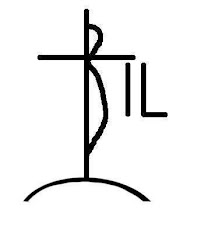The Resurrection
They’ve scored an astounding 252 goals in 75 matches. That’s an average of 3.36 goals per game. Not bad at all. Their women’s counterparts on the other hand refuse to be outdone. In 46 matches, they’ve scored 224 goals for an average of 4.8 goals per game.
It’s mind-boggling until you realize that’s what the foreign teams have done to our men’s and women’s national football teams in the last 21 and 15 years respectively.
In that span, our men’s football team has won six games and drew another six while scoring 36 goals of their own. The longest losing streak was 15 matches from 1996-98 but it would have been much longer had they not beaten Guam 2-0 in an Asian Cup Qualifier for they would go on to lose their next nine.
The women’s national team has had it worse: they’ve only one victory to show and one loss. They’ve suffered a pair of drubbings by the People’s Republic of China in the mid-90’s 21-0 and 16-0 and a 15-0 rout by Japan in 2003. It’s a wonder they still troop to the pitch.
Things are said to be going much better however slowly. Just the other day, National Team coach Aris Caslib decried the lack of intel on our foes for the Asean Football Championships (formerly the Tiger Cup) that is being played in our own backyard of Bacolod. The football braintrust can only base their information on Cambodia, Laos, Brunei, and Timor Leste from how they performed during last year’s SEA Games.
We are currently ranked #195 out of # 205 footballing nations. Look who’s after us: Anquilla, Cook Islands, Belize, Djibouti, Sao Tome Principe, Aruba, US Virgin Islands, Montserrat, Guam, and American Samoa.
But you know what they say about when you’re down, the only way to go... is up. “With more and more people playing football nowadays,” says PFF President Johnny Romualdez, “Part of the problem is having experienced coaches to train the players.” The PFF recently helped bring in Andalusian Coaches for a 10-day training clinic for 50 of our national coaches. The inclusion of Fil-foreigners into the national team is part of the plan to effect transfer technology. The grassroots program such as the Kasibulan Youth (of the Davao Football Association) and the Under-14 boys’ and girls’ teams among many others are underway. More and more teams are being sent abroad to learn the intricacies of the game and to be exposed to a higher level of competition. Romualdez is cautioning Filipinos not to expect changes overnight. It will take some more time before we start to see bigger changes. But the national teams have been more competitive as of late. Gone are the days of those demoralizing blowouts. In the last SEA Games, opponents marveled at the National Team’s more competitive nature. For the first time in years, the football stadia in Bacolod and Marikina played to packed crowds. Football officials are hoping that the last SEA Games and the recent FIFA World Cup would continue to fans the flames of interest and growth of football to a fever pitch with the ASEAN Football Championship in Bacolod. “It’s an exciting time for Philippine football,” adds Romuladez. “We’re beginning our march towards respectability.”
Allez, Les Bleus!
England and France may sit as permanent members on the United Nation’s Security Council now but back then, theirs was a brutal relationship that is best known collectively as the Hundred Years’ War. Of course, matters today between the two countries are a far cry from the medieval times. The peace and prosperity of post-World War II has catapulted both countries into the world arena in ways their ancestors never conceived. But the rivalry still exists.
England is widely credited as the “inventor” of the game and the domestic English Premiere League is said to be one of the best leagues in the world today. How ironic is it then that a handful of Frenchmen have been accorded some of the highest honors in the EPL.
Arsene Wenger is the most successful manager in Arsenal’s history. The Strasbourg native has secured for the Gunners the most number of silverware and is the club’s current longest-running manager with over 550 matches to date. He is the only foreign-born manager to win the Double (the League and FA Cup) in EPL history and he accomplished it twice – 1998 and 2002. He led the Gunners to the only undefeated season in EPL history (in 2004). Wenger has been knighted OBE by Queen Elizabeth herself.
Former Liverpool manager Gerard Houllier is another Frenchman knighted OBE. After a vastly successful six-year tenure with the Reds, Houllier is now in the midst of another successful run with Olympique Lyonnais, the defending Ligue 1 champions. With Liverpool, he won six trophies including a rare Treble in one season.
Thierry Henry plays for Arsene Wenger in Arsenal where he has become the club’s all-time leading scorer surpassing the great Ian Wright’s 185-club goals in 2005. After a failed stint with Juventus, Henry transferred to Arsenal where Wenger moved him from the win to the position of striker. To date, it remains one of Wenger’s masterstrokes for aside from Henry’s 200+ goals; he is the only player in EPL history to score 25 goals in five consecutive seasons.
Since we began this column on the Hundred Years’ War maybe its best that we end this with the man known in Old Trafford as “the King.” Eric Cantona helped launch Manchester United into a new era of prosperity during his seven-year hitch with the Red Devils helping them to the first Double ever in English football history while mentoring young studs David Beckham, Gary Neville, Ryan Giggs, and Paul Scholes. Almost decades after he hung up his spikes from the pitch, the crowds at Old Trafford still sing the King’s name.
Monday, November 13, 2006
A Pair of Football Stories
Subscribe to:
Post Comments (Atom)








No comments:
Post a Comment